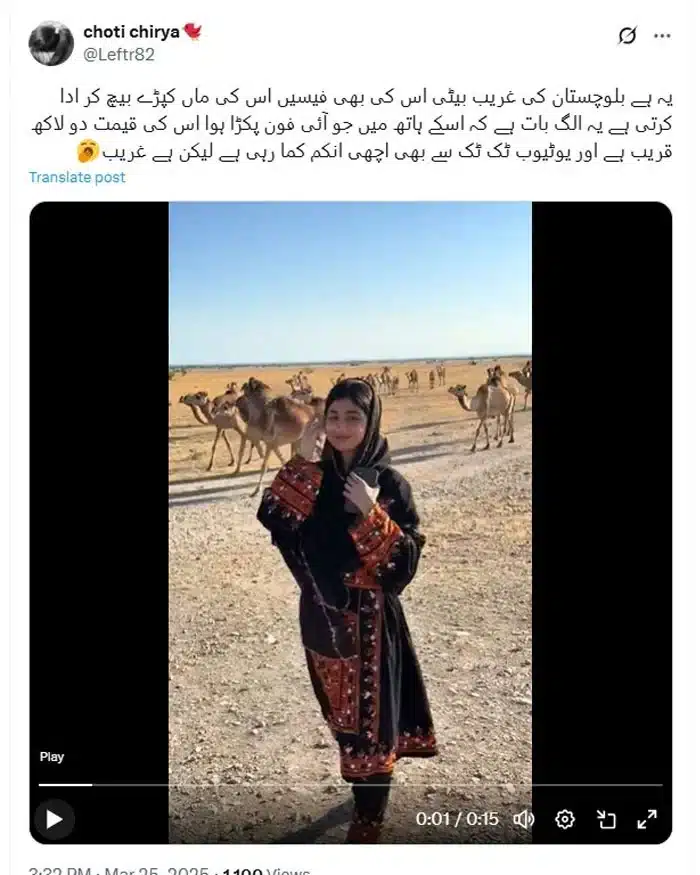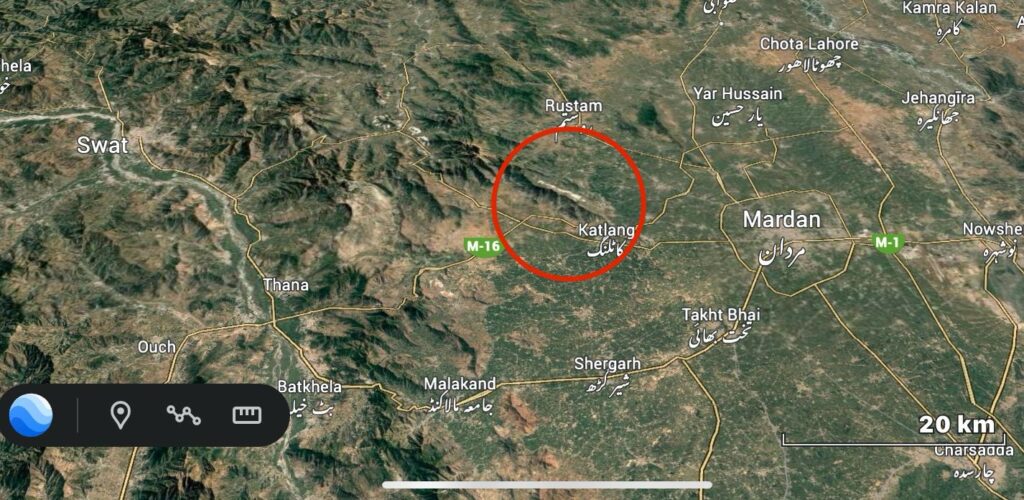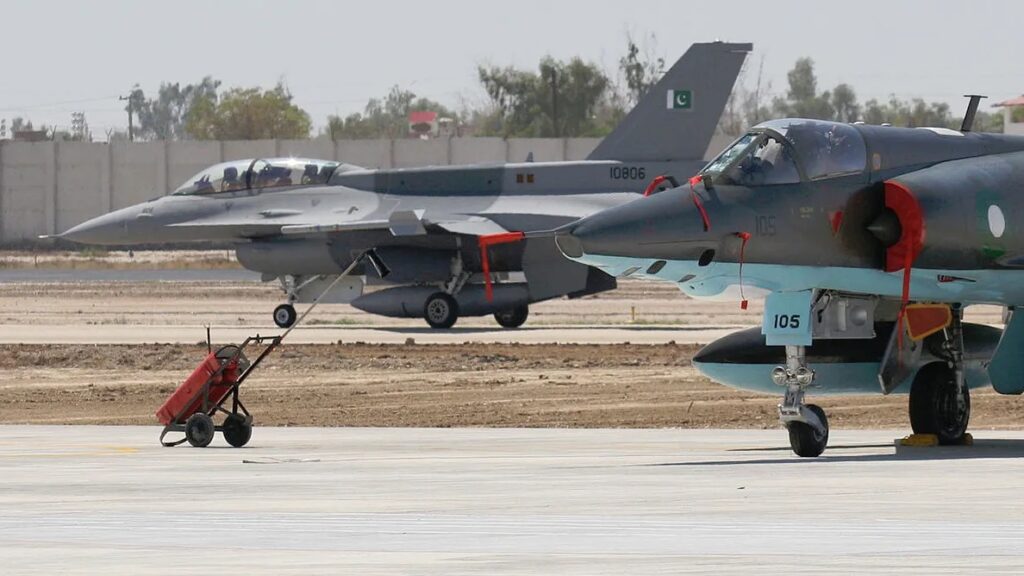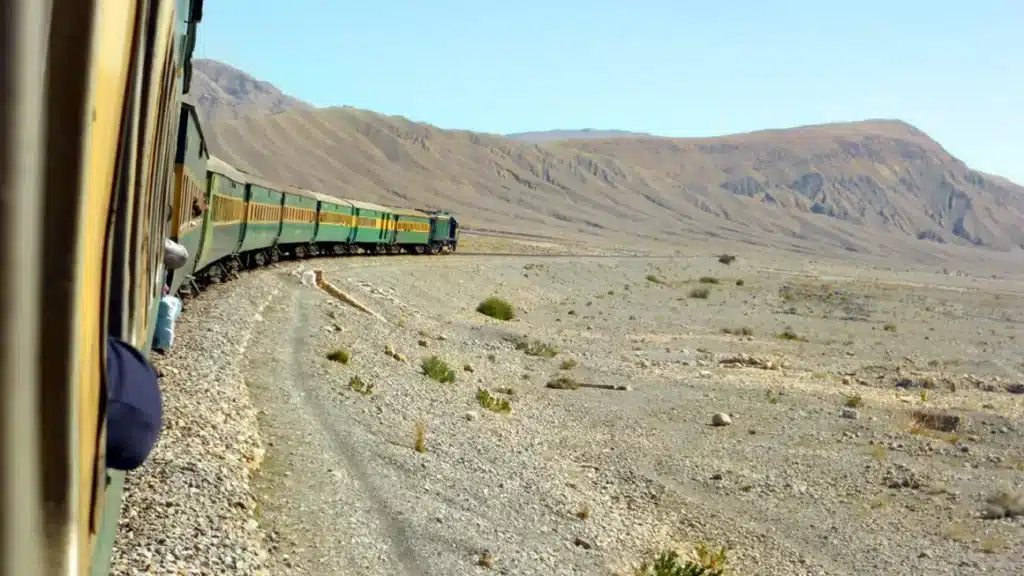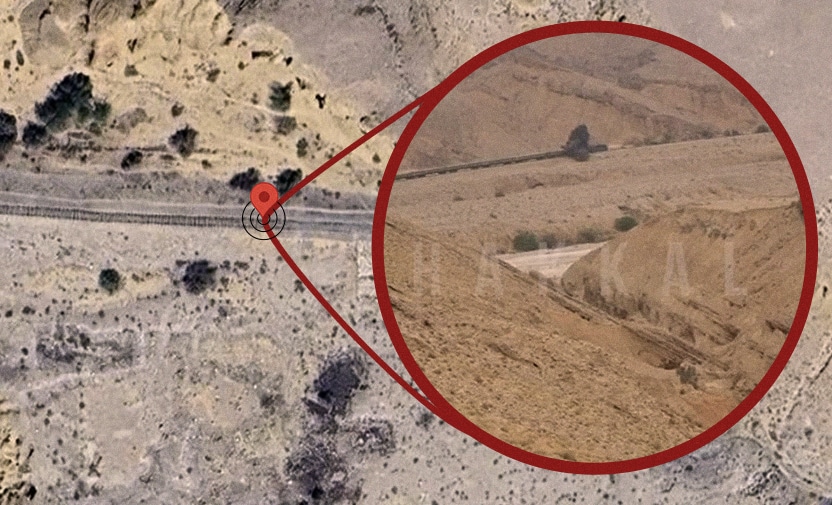A viral video of a young woman is being shared on social media with false and misleading claims, apparently aimed at discrediting families of Balochistan’s missing persons by questioning their financial hardships.
Social media posts allege that while these families complain about economic struggles, they can be seen using expensive iPhones. One such post on March 25 on X (formerly Twitter) sarcastically claimed: “This is Balochistan’s poor daughter, whose mother sells her clothes to pay her tuition. Yet she holds a phone worth Rs 200,000 and earns well from YouTube and TikTok—but still claims to be poor.”
In the video, a woman can be seen posing in a desert with camels in the background. Another viral post mocking the missing persons’ families said, “The sisters and daughters of missing persons claim their mothers sell clothes to pay fees, yet don’t forget to carry iPhones while making TikToks.” This particular post received over 198,000 views.
These misleading posts surfaced shortly after a BBC Urdu documentary aired on March 21, featuring four families of missing persons in Balochistan. In the documentary, Dr. Mahrang Baloch, an organizer of the Baloch Yekjehti Committee (BYC), revealed that her mother sold clothes and later jewelry to pay her medical college fee.
Shortly after, several social media accounts began sharing an unrelated video clip to mock and malign the families featured in the documentary.
Fact Check: The video in question was not filmed in Balochistan but in Oman. A reverse image search of the video’s keyframes revealed that it was posted on February 7 by popular digital content creator Noorah Baloch on Instagram with the caption “Camels of Oman.” The woman seen in the video is Noorah Baloch, a well-known influencer with over 2 million TikTok followers and more than a million followers on Instagram. She describes herself as an artist, content creator, and vlogger based in both Oman and Pakistan’s Balochistan province.
Verdict: The viral video is being misleadingly used to target and discredit the families of Baloch missing persons. In reality, it features a well-known content creator filming in Oman and has no connection to the families highlighted in the BBC documentary.

